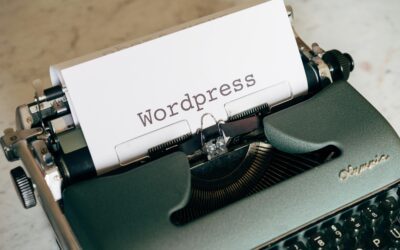In today’s digital age, personal data is more valuable—and vulnerable—than ever. From social media profiles to online shopping habits, companies collect vast amounts of information about individuals. But who owns that data? How is it protected? That’s where GDPR comes in.
What Does GDPR Stand For?
GDPR stands for the General Data Protection Regulation. It’s a law passed by the European Union (EU) that governs how personal data is collected, stored, and used. It came into effect on May 25, 2018, and applies not only to companies within the EU but to any business that handles the personal data of EU citizens—no matter where that business is located.
Why Was GDPR Introduced?
Before GDPR, European data protection laws were outdated. They hadn’t kept pace with the explosion of digital technology, mobile apps, cloud services, and the global nature of the internet.
GDPR was introduced to:
- Give people greater control over their personal data
- Hold organizations accountable for how they use that data
- Create a unified standard across all EU member states
What Counts as “Personal Data”?
Under GDPR, personal data means any information that can identify a person, either directly or indirectly. This includes:
- Names
- Email addresses
- IP addresses
- Photos
- Social media posts
- Health records
- Biometric data
- Location data
If it can be linked back to an individual, it’s covered by GDPR.
Key Principles of GDPR
GDPR is built on several core principles that organizations must follow:
- Lawfulness, fairness, and transparency
Data must be collected and used in a legal, fair, and transparent way. - Purpose limitation
Companies must collect data only for specific, legitimate purposes—and not use it for anything else. - Data minimization
Only the data that’s truly necessary should be collected. - Accuracy
Data should be kept accurate and up to date. - Storage limitation
Personal data should only be stored for as long as it’s needed. - Integrity and confidentiality
Data must be kept secure and protected from unauthorized access or leaks. - Accountability
Companies must be able to demonstrate that they’re complying with these rules.
What Rights Do Individuals Have?
GDPR gives individuals powerful rights over their data, including:
- The right to access: You can ask what data a company holds about you.
- The right to rectification: You can request corrections to inaccurate data.
- The right to erasure: Also called “the right to be forgotten.”
- The right to data portability: You can transfer your data from one provider to another.
- The right to object: You can stop certain types of data processing, like marketing.
- The right to be informed: Companies must be clear about how they use your data.
- The right to restrict processing: You can ask companies to limit how they use your data.
What Happens If Companies Don’t Comply?
Non-compliance with GDPR can result in huge fines—up to €20 million or 4% of a company’s global annual revenue (whichever is higher). But beyond the fines, companies also risk losing customer trust and damaging their reputation.
How Does GDPR Affect You?
- As a consumer: You have more control and transparency over your personal data.
- As a business owner: You need to make sure your data practices are compliant, or face serious consequences.
Final Thoughts
GDPR is more than just a legal obligation—it’s a shift in the way we think about data privacy. It puts power back into the hands of individuals and pushes companies to treat personal data with the respect it deserves.
Whether you’re a user, a startup founder, or part of a global enterprise, understanding GDPR isn’t just good practice—it’s essential in the modern digital landscape.





0 Comments